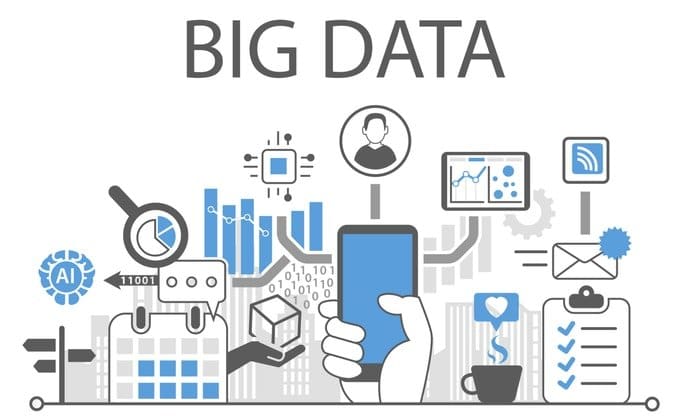Beni Gradwohl, co-founder and CEO of Cognovi Labs, joins host Dara Tarkowski to focus on psychological synthetic intelligence (AI), also acknowledged as “affective computing.”
- Emotion AI (also recognised as affective computing or synthetic psychological intelligence) is a branch of synthetic intelligence that actions and learns to fully grasp humans’ emotions, then simulates and reacts to them.
- Cognovi Labs CEO Beni Gradwohl is producing a psychology-driven synthetic intelligence (AI) system that assists shoppers in the commercial, wellness and general public sectors get insights into their customers’ or audiences’ thoughts in purchase to forecast their decisions. This knowing also assists consumers far better connect with their constituents.
- Beni joins me to explore his unconventional career journey, Cognovi’s tech and why, in the wake of a world pandemic, Emotion AI is additional related than ever.
We humans are social animals. We’re born with neurons that assist us realize facial expressions, voice inflections and human body language, as nicely as the capability to modify our interactions with other people appropriately. Most of us refine people capabilities and insert new types as we improve.
We’re virtually wired to read through emotions.
But in our era of speedy alter, how can we do that at scale and in actual time?
Ben-Ami (“Beni”) Gradwohl, co-founder and CEO of Dayton, Ohio-primarily based startup Cognovi Labs, is functioning to coach machines to measure and fully grasp humans’ psychological responses. Introduced in 2016, Cognovi is at the forefront of innovation in the artificial emotional intelligence (AI) house. The company’s psychology-pushed AI platform can help purchasers in the professional, health and fitness and general public sectors gain insights into how their prospects or audiences really feel, forecast their choices and talk in strategies that complement these emotions.
“At the very least 50 many years of investigate in psychology, neurology and behavioral sciences have shown that we are not as rational as we consider we are,” states Beni. “In point, the extensive the greater part of decisions we make are designed by the unconscious head, based mostly on thoughts.”
Though Emotion AI is in its infancy, it is a lot more suitable than ever — and if AI can help us fully grasp human psychological responses, can it be utilized to impact men and women for the increased good?
On an episode of Tech on Reg, I spoke to Beni about his career route, Cognovi’s tech and why emotional intelligence (EQ) is the long run of AI.
From academia to AI
When Beni was escalating up, AI was purely science fiction. In point, his unique job path was nearer to “Cosmos” than “Battlestar Galactica.” A educated astrophysicist, he put in a number of yrs in academia prior to pivoting to finance for two a long time, first at Morgan Stanley and then at Citi.
In the late ‘90s, he took a training course at Harvard in behavioral economics and behavioral finance, which had been nonetheless reasonably new principles in the enterprise world. That was the starting of a journey that in the end led him to launch Cognovi Labs.
“I arrived from this quantitative work where almost everything experienced to do with information, but this class was an eye-opener,” Beni recalls. “I reported, my gosh — the globe doesn’t revolve close to hard details. It is really all-around how people make selections.”
But by the time he joined Citi through the financial crisis of 2008 — as element of a senior management workforce tasked with stabilizing the bank’s property finance loan portfolio — he recognized the urgent will need for business enterprise “to systematically fully grasp how we make choices, so we can help society in a better way.”
The new EQ
The company’s name is a portmanteau of cognitive and novus (the Latin term for “new”), although the subject of artificial emotional intelligence dates again to about 1997, when MIT Media Lab professor Rosalind Picard published “Affective Computing” and kicked off an fully new department of laptop science.
In an posting about Emotion AI on the MIT Sloan Faculty of Business enterprise web site, writer Meredith Sloan asks:
What did you assume of the last business you watched? Was it amusing? Confusing? Would you buy the item? You could not bear in mind or know for certain how you felt, but increasingly, machines do. New synthetic intelligence technologies are mastering and recognizing human emotions, and employing that expertise to increase all the things from advertising strategies to wellness treatment.
Beni details out that Emotion AI “uses equipment finding out to replicate what we do as human beings day in and day out, which is to understand people’s feelings.”
Paradoxically, most men and women really feel uncomfortable chatting about or sharing their feelings, he notes. “Some folks can not even admit their thoughts to themselves.”
But mental wellness “came into these sharp emphasis throughout the pandemic, simply because so many people ended up having difficulties so significantly for so quite a few various causes … sensation isolated, fearful, unwell. Everything was in flux,” he adds.
Comprehending feelings to analyze motivations
Extra than at any time, we know that emotional wellness is portion of in general health and fitness, and that (on a own degree) we ought to attempt to fully grasp and deal with our emotions. At do the job, Beni suggests that we need equally IQ (to review and issue fix) and EQ (emotional intelligence, to realize the social and emotional cues of other individuals). And due to the fact 90% of choices are made by the unconscious intellect based on emotions, understanding thoughts is critical.
“If it’s vital, let’s evaluate it,” says Beni. “And let us just evaluate it in a way that also [ allows us ] to build value.”
Not all of us have a higher EQ. Some folks are incapable of recognizing thoughts — or basically much less perceptive of them — owing to neurodivergence. Even very emotionally smart people may possibly not fully realize the breadth of human emotion, or they may perhaps misread the psychological motivation of one more human being. And despite the fact that most of us can inform people today are offended when they yell, or sad when they cry, it is a ton additional tough to browse an posting (and get other people to concur on) the writer’s tone or mood.
“You can extract feelings with visuals … [ and ] audio, like if any person shouts or slows down or pauses. And you can do it as a result of sensors [ that measure ] coronary heart costs and irrespective of whether people today are sweating,” suggests Beni.
Text is a bit more intricate. Social media posts, discussion boards, e-mails, transcriptions of meetings or telephone phone calls — they’re all data that (through Cognovi’s proprietary IP) are segmented and analyzed in order to extract and characterize the thoughts of the people writing or talking.
Inside the finding out device
When examining a offered text, Cognovi’s AI very first identifies the subject matter at hand: Is the discussion about “buying Nike sneakers, or about politics, or about the war in Ukraine?” Beni asks.
Up coming, the AI extracts the underlying emotional undertone of the text and types it into a single of 10 thoughts: pleasure, anger, disgust, concern, unhappiness, shock, amusement, belief, contempt and manage.
Then, it quantifies how emotions push the tendency or impulse to act in particular ways, if men and women act at all (“if they’re not [ feeling ] emotions, they’re not likely to do something,” claims Beni). The output depends solely on the knowledge the shopper delivers. Some consumers offer text from social media posts, dialogue discussion boards, weblogs and other publicly readily available data. Many others want to use surveys they create (or question Cognovi to assist them generate surveys), which offer “rich information” that allows customers recognize why their viewers customers behave the way they do.
Unblocking the blockers
A person this sort of shopper was a pharmaceutical business wanting for means to improved sector a remarkably effective, but below-prescribed drug to medical practitioners. Even although the organization analyzed its very own facts to phase medical doctors into groups, it even now could not determine out why some physicians in a certain state didn’t prescribe the drug to their individuals.
“Similarly to attorneys, we constantly consider that physicians are wholly rational,” Beni clarifies. “There is investigation exhibiting that even in clinical conclusions, health professionals are really emotional.”
The business necessary “to determine out the emotional blockers and the emotional drivers,” he adds. “Because there were being plainly no rational explanations not to give patients that medication. It was not similar to cost or reimbursement or to side results. There was anything else happening.”
So the Cognovi crew (which consists of a clinical medical doctor) made a custom made study it identified as the “diagnostic interview,” a 10-question questionnaire built to broach problems linked to the ailment the drug treats — in a way that generated strong emotional responses from prescribers.
The ensuing information revealed a specific psychological inhibitor that the customer straight away regarded, telling Beni they had recognised for 10 yrs that this specific “blocker” could be an concern. The moment they realized for certain, they could face it head-on and chat frankly about it to doctors.
Future fascination
Blame Hollywood: Thanks to flicks and Tv about robots absent horribly incorrect, many individuals have a tendency to imagine of AI as menacing or worrisome at greatest. As a longtime educator, Beni has found that his students have grow to be a lot more fascinated in the philosophical, moral and ethical challenges about AI than the technical types.
But Emotion AI aims to “augment one thing we should be executing significantly superior than we are,” suggests Beni. “If we are more emotionally smart, the planet I believe [ will experience ] a lot less criminal offense, I consider there will be considerably less war. … Any technological know-how, any capacity [ we have ], we should do it.”
Nevertheless, he feels strongly that we cannot continue on to innovate without any governance. For the reason that AI represents an fully new established of problems, we have to rethink polices and oversight — as perfectly as our ways to privateness and safety.
Now, he thinks lots of businesses try out to “understand their people greater to do correct by their prospects and their employees,” mainly because everyone struggles occasionally.
“Maybe what is going on at Cognovi can help organizations to make a variance.”
Beni appreciates a single matter for absolutely sure: “How we use AI, how we regulate AI, and how we do it for the superior will alter how our little ones are likely to develop up. So get concerned. That is my suggestion to every person: regardless of whether you are a tech individual, or a philosopher, a lawyer or a social scientist, there’s a position to be performed — for you to condition the potential.”
This is dependent on an episode of Tech on Reg, a podcast that explores all matters at the intersection of legislation, technologies and hugely controlled industries. Be sure to subscribe for upcoming episodes.






More Stories
Artificial Intelligence Can Improve Building Security
Amazon, Google, and Meta’s big bets didn’t pay off in 2022
TikTok recognised as a threat by US Government